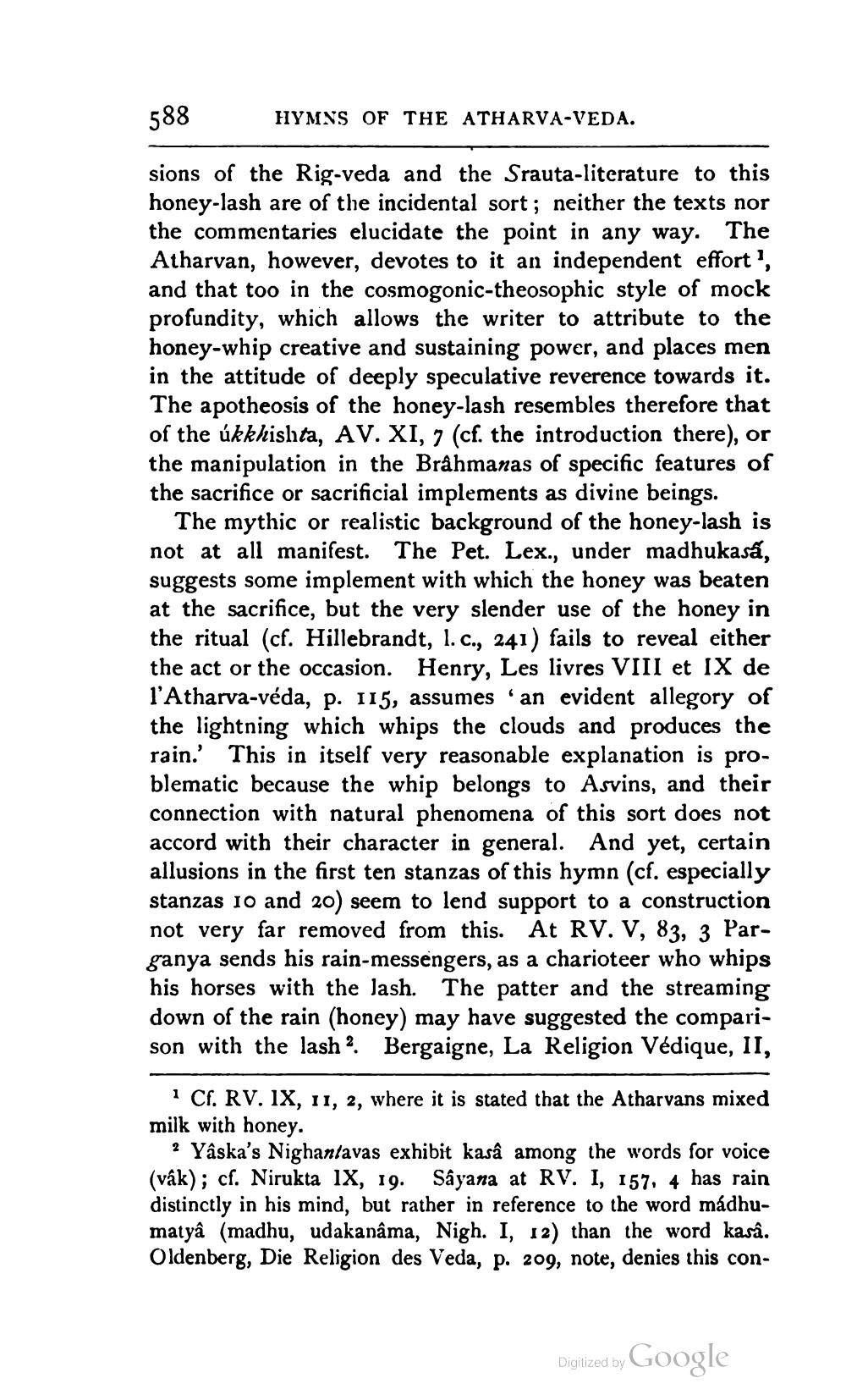________________
588
HYMNS OF THE ATHARVA-VEDA.
sions of the Rig-veda and the Srauta-literature to this honey-lash are of the incidental sort; neither the texts nor the commentaries elucidate the point in any way. The Atharvan, however, devotes to it an independent effort', and that too in the cosmogonic-theosophic style of mock profundity, which allows the writer to attribute to the honey-whip creative and sustaining power, and places men in the attitude of deeply speculative reverence towards it. The apotheosis of the honey-lash resembles therefore that of the úkkhishta, AV. XI, 2 (cf. the introduction there), or the manipulation in the Brahmanas of specific features of the sacrifice or sacrificial implements as divine beings.
The mythic or realistic background of the honey-lash is not at all manifest. The Pet. Lex., under madhukasă, suggests some implement with which the honey was beaten at the sacrifice, but the very slender use of the honey in the ritual (cf. Hillebrandt, 1.c., 241) fails to reveal either the act or the occasion. Henry, Les livres VIII et IX de l'Atharva-véda, p. 115, assumes an evident allegory of the lightning which whips the clouds and produces the rain. This in itself very reasonable explanation is problematic because the whip belongs to Asvins, and their connection with natural phenomena of this sort does not accord with their character in general. And yet, certain allusions in the first ten stanzas of this hymn (cf. especially stanzas 10 and 20) seem to lend support to a construction not very far removed from this. At RV. V, 83, 3 Parganya sends his rain-messengers, as a charioteer who whips his horses with the lash. The patter and the streaming down of the rain (honey) may have suggested the comparison with the lash 2. Bergaigne, La Religion Védique, II,
1 Cf. RV. IX, 11, 2, where it is stated that the Atharvans mixed milk with honey.
? Yâska's Nighantavas exhibit kasâ among the words for voice (vák); cf. Nirukta IX, 19. Sâyana at RV. I, 157, 4 has rain distinctly in his mind, but rather in reference to the word madhumatyâ (madhu, udakanâma, Nigh. I, 12) than the word kaså. Oldenberg, Die Religion des Veda, p. 209, note, denies this con
Digized by Google




